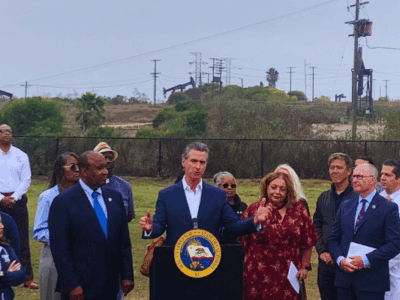A Corporate Culture of Carelessness
[updated 3 p.m. 5/9] According to the NY Times, BP is unusually accident-prone:
BP continues to lag other oil companies when it comes to safety, according to federal officials and industry analysts. Many problems still afflict its operations in Texas and Alaska, they say. Regulators are investigating a whistle-blower’s allegations of safety violations at the Atlantis, one of BP’s newest offshore drilling platforms in the Gulf of Mexico. . . .
“BP has systemic safety and health problems,” said Jordan Barab, the assistant secretary of labor for OSHA. “They need to take their intentions and apply them much more effectively on the ground, where the hazards actually lie. . .
”Some analysts say the safety problems indicate that BP has not yet reined in the culture of risk that prevailed under Mr. Hayward’s predecessor, John Browne, who transformed BP from a sleepy British oil producer into one of the world’s top explorers through the acquisitions of Amoco and Atlantic Richfield.
Interestingly, “the industry standard for safety, analysts say, is set by Exxon Mobil, which displays an obsessive attention to detail, monitors the smallest spill and imposes scripted procedures on managers.” Analysts attribute this in part to the Exxon Valdez oil spill and its aftermath (presumably “aftermath” includes the massive litigation.)
Of course, if it’s true that BP is weak on accident prevention, that doesn’t necessarily mean that there were lapses in this instance or that the lapses were the cause of the blowout. But BP’s record is a reason for concern.
UPDATE The Washington Post has an interesting article today discussing possible causes of the accident, including the possibility that the accident basically reflects the fact that drilling in such deep water involves risks beyond our capacity to control effectively:
“Murphy’s Law: If anything can go wrong, it will,” Deffeyes said.
Which raises the most ominous scenario for the industry: That there was no single, dramatic failure of technique or technology or human vigilance. Instead, the industry may simply have miscalculated the risks of drilling in the more highly pressurized deepwater reservoirs, said Nansen Saleri, president and chief executive of the technology firm Quantum Reservoir Impact.
“The frontiers of exploration have been pushed out to far more complicated and contentious environments,” Saleri said. “There is a need to take a fresh look at the whole thing.”
Said analyst Byron King, “This is the oil industry’s Chernobyl.”
The Chernobyl analogy is not apt — Chernobyl was a major screw-up using out-of-date technology, not an inevitability. But the point could turn out to be right that as we push oil technology into more and more difficult settings, major accidents are inevitable. Or may be not: maybe it’s just a matter of getting regulation and organizational practices right.







Reader Comments